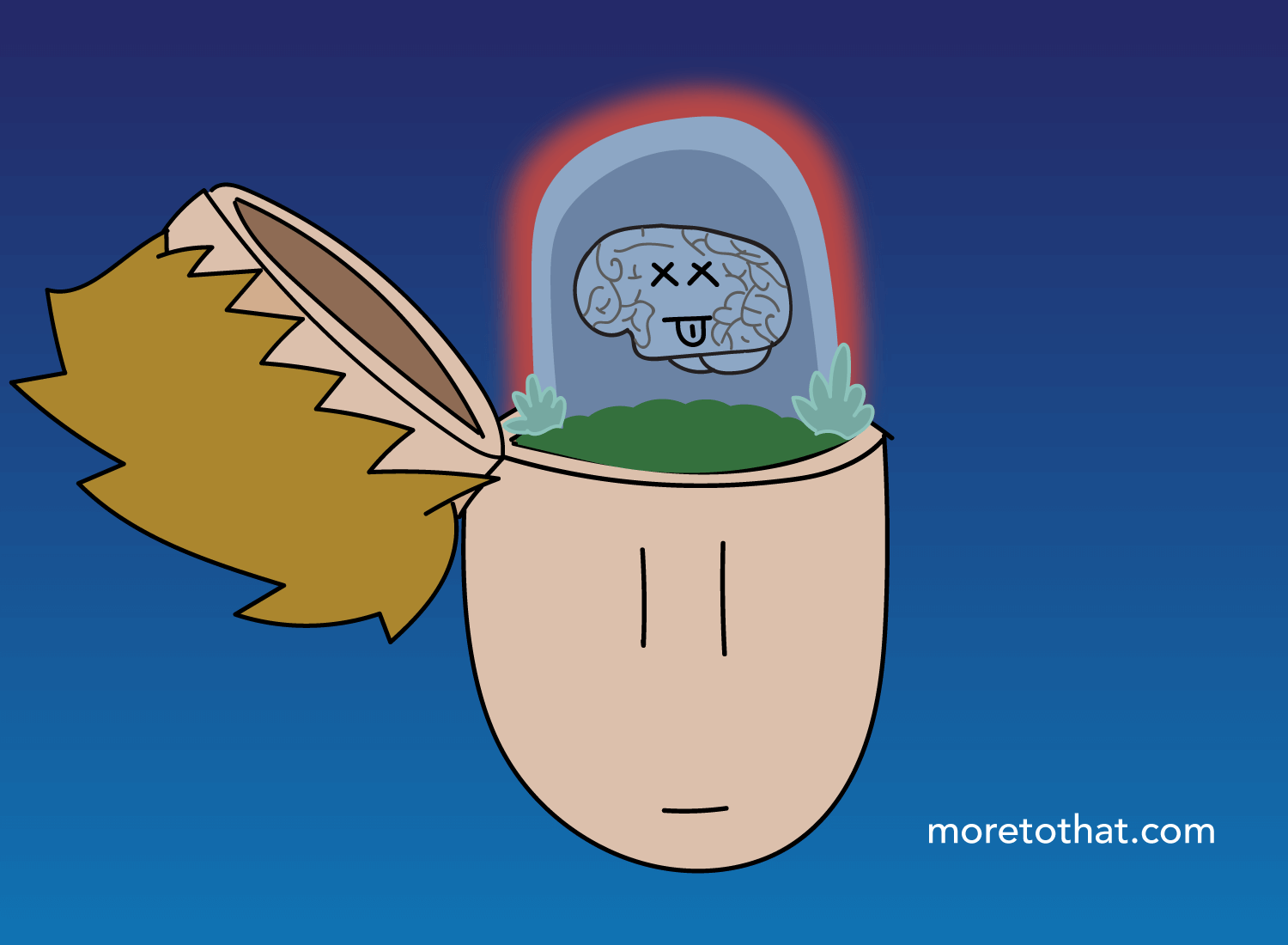The Allergy to Uncertainty
I’m not sure if this is still possible, but I was an undeclared major until my senior year of college. Part of this was because I wanted to keep my options open, but most of it was because I had no idea what I wanted to pursue.
At one point, I asked an advisor if I could graduate as an undeclared major, and the way she said “no” was through the sound of laughter. While that response was designed to make me feel stupid, I instead felt confused.
How are these people expecting me to commit to a field of study in my early twenties?
How do I know that the major I’m choosing now will be of interest to me in ten years?
How come I can’t just be honest about this and graduate knowing that I still have so much to explore?
I recall these questions being particularly salient that day, despite knowing that I needed to choose something to exit college with a degree in hand. I was going to concede to the constraints of convention in order to graduate, but I also knew that this entire system was sculpted by the hands of rigidity. Rather than treating each student as a dynamic mind with evolving interests, this system would rather create a false sense of certainty in each person to start them off on a well-paved path.
This was the first time I wondered why we are so allergic to uncertainty, despite knowing that it’s the only thing certain about existence. Why do we urge people to develop a false confidence about their future, when we could instead teach them how to develop a healthier relationship with the unknown?
Over time, I’ve realized that it ultimately comes down to two things:
(1) Uncertainty is a liability when optimizing for one’s productivity, and
(2) Uncertainty is often mischaracterized as a lack of focus.
Let’s start with #1.
When you graduate from any educational system, the expectation is for you to convert that store of knowledge into a trove of value. Everything you’ve learned has to have a concrete purpose, which is usually to help your employer become more profitable or strengthen its reputation.
Productivity is a system of habits and routines that allows for this cultivation of value. It ensures that your big goals can be reached if you adhere to these small routines for long enough, and at sustained intervals. For example, if you can sit down and code for 3 straight hours each day, you’ll be able to ship the next version of the app in two weeks. If you can create two Powerpoint decks each week, you’ll be able to pitch over 100 clients by the end of the year. And so on.
What this means is that productivity only works if it’s well-defined, and anything with a tight scope has little tolerance for uncertainty. You have to know exactly what you’re working toward, given that each day is yet another opportunity to run through the same routine again. Repetition only works if you know exactly what to repeat in the first place, and this is only sustainable if you believe in the vision of what you’re cycling toward.
Educational systems want you to choose a major because this certainty will narrow down your field of vision to one path, which will help you stay focused on a singular goal. Instead of interviewing for 10 companies across 10 industries, you’ll interview for 10 companies across one. The latter situation will make the entire process repeatable, which is what a well-oiled system of productivity looks like.
But the error we make is in believing that this narrowing of attention somehow makes us more capable. That by being more certain about the path you’re on, you’re a more disciplined and focused person, knowing damn well what you want and how you’ll get it.
While this type of mind may be a productive one, the reality is that it is far too certain of itself. It will view wonderment as a distraction, which means that this mind is one that is no longer curious, and any mind that is no longer curious is one that is dead.
Certainty is rewarded because it maximizes your ability to create value, but the tradeoff is that you stop paying attention to the things that don’t obviously contribute said value. For example, this is why some ambitious parents will answer work emails over the dinner table instead of asking their kids how their days were. Answering their boss’ email is a direct way of being valuable because that’s how they earn their salary, whereas being curious about their children has no monetary value associated with it. To a parent that values certainty above all else, it makes sense to answer that email instead of wondering how their kids’ days went.
But the paradox, of course, is that the most beautiful things about life are the things that don’t yield tangible value.
Hearing about your kids’ days won’t lead to a deposit of money in your bank account, but it will lead to a deposit of trust that cannot be substituted with any amount of money. To understand this, however, you have to first accept that the intangibility of your child’s trust is far more important than the tangibility of your boss’ paycheck. It’s one thing to accept this in theory, but it’s another to embrace it wholeheartedly in your day-to-day actions.
Charlie Munger once said that the first rule of compounding is never to interrupt it unnecessarily. The frame he was using was that of money, but it applies just as well to trust.
Every time you take your phone out while a loved one is talking to you, you are interrupting the magic of compounding. Every time you promise to attend an event but fail to show up, you interrupt it yet again.
Wisdom is keeping the little moments in mind, no matter how big the distractions can get. And chances are, the little moments are more serendipitous than they are planned; more whimsical than they are anticipated. In short, they are shrouded in uncertainty, and it is only by being comfortable with the unknown where you make the most out of what these little surprises can provide.
Contrary to popular belief, embracing uncertainty doesn’t make you unfocused; in reality, it actually sharpens your attention over time. Because you’re okay with whatever emerges, you become far more aware of those emergences when they do indeed occur.
People that treat life like an endless to-do list will fail to notice the subtle changes happening around them. The bird’s nest being constructed near their doorstep, the new haircut their friend got, the fresh flower that emerged on the sidewalk. All of these things will seamlessly blend into the background, while the sole pursuit of their attention will always be highlighted. The work project they’re so focused on will override any small, peripheral joys that can be seen as such if only they were noticed.
There’s nothing that gets you acclimated to life’s contents more than a commitment to certainty. Now that I’m 15 years removed from college, I’m seeing how this dynamic has manifested in some classmates that knew exactly what careers they (thought they) wanted since their freshman year. Perhaps unsurprisingly, many of them are now wondering how else they could be spending their time, as nothing about their careers makes them curious anymore. While certainty may have paid off from a monetary standpoint, it did little to stimulate them from an intellectual one.
Given that the future is never certain, it’s important that we embrace that fact instead of fighting it. So much of what we desire is rooted in stability and predictability, but the real fruits of life come from an acceptance of that which we didn’t anticipate. Nostalgia is a longing for the events that once gave you delight, and delight is generally birthed through the introduction of surprise.
_______________
_______________
Related Posts
On letting go of the desire to control our lives:
On using curiosity as a tool to appreciate the unknown:
Painting the Bullseye: What Happens When We Lose Our Curiosity?
On realizing that challenging problems are the source of great meaning:





